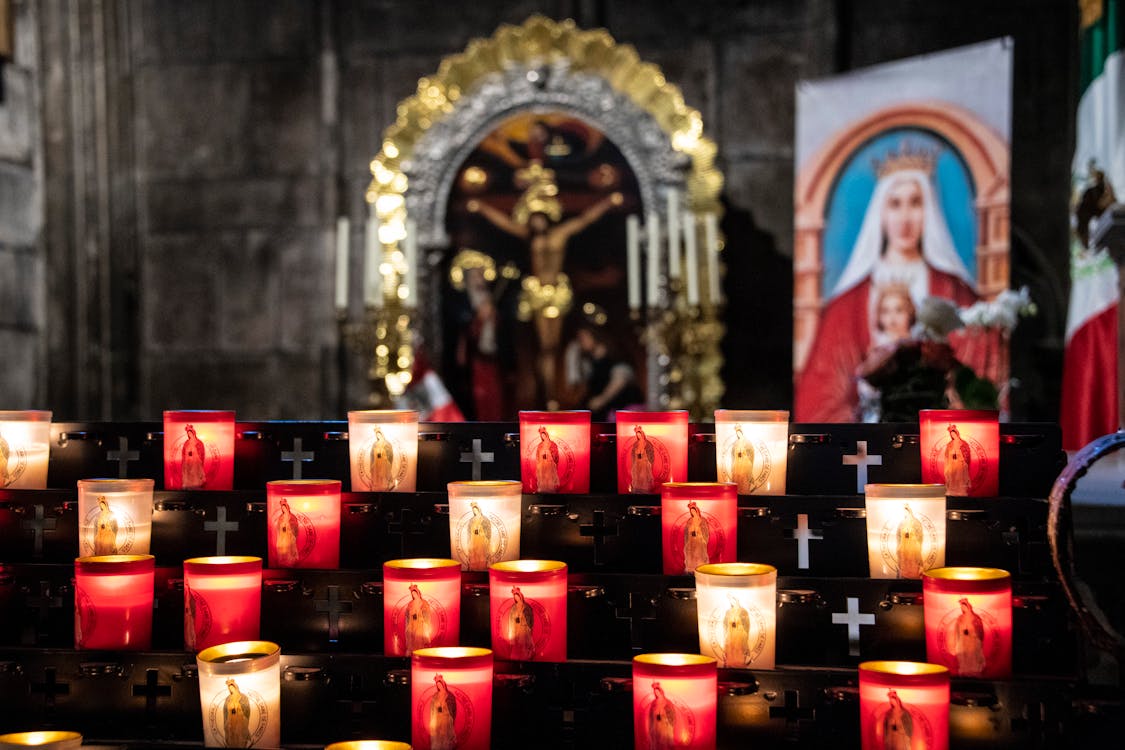Christian Rituals and Their Symbolism: Unveiling the Deeper Meaning
Christianity, with its rich history and diverse denominations, holds a multitude of rituals and symbols that hold profound meaning for its followers. These practices go beyond mere tradition; they serve as powerful expressions of faith, offering a deeper connection to the core tenets of the religion. Let's delve into some of the most significant Christian rituals and their symbolic significance:

1. Sacraments: Visible Expressions of Grace:
- Baptism: This ritual signifies spiritual cleansing and rebirth, marking the individual's entry into the Christian faith. Water symbolizes purification, while the act of immersion or pouring represents a washing away of sin and a new beginning.
Eucharist/Holy Communion: This central ritual commemorates Jesus' sacrifice. Bread and wine symbolize the body and blood of Christ, offering believers a spiritual communion with him. Different denominations hold varying interpretations of the Eucharist's presence, with some believing in the literal transformation of the elements (transubstantiation) and others emphasizing a symbolic representation.
2. Other Significant Rituals:
- Confirmation: This ritual, practiced in some denominations, signifies the strengthening of faith and the individual's commitment to the Christian life.
- Marriage: Viewed as a sacred union blessed by God, marriage rituals symbolize the lifelong commitment between two individuals and the creation of a new family unit.
Funeral Rites: These rituals offer closure and comfort to the bereaved, acknowledging the passing of a loved one and celebrating their life.
3. The Power of Symbols:
Beyond rituals, Christian symbolism plays a vital role:
- The Cross: This universally recognized symbol represents Jesus' sacrifice and ultimate victory over death.
- Fish: An early Christian symbol, the fish (Ichthus) stands for "Jesus Christ, God's Son, Savior."
- Light: Often represented by candles or flames, light symbolizes the presence of God, hope, and guidance.
Water: As seen in baptism, water signifies cleansing, purity, and new beginnings.
Understanding the Significance:
Christian rituals and symbols are not merely empty gestures; they are powerful tools that:
- Connect believers to core Christian teachings: They serve as tangible reminders of Jesus' life, teachings, and sacrifice.
- Foster a sense of community: Shared rituals strengthen the bonds within the Christian faith and create a sense of belonging.
Provide spiritual growth: These practices offer opportunities for reflection, prayer, and deepening one's faith.
Exploring the Diversity:
It's important to note that Christian denominations may have varying interpretations and practices regarding specific rituals and symbols. Understanding these diverse perspectives enriches our appreciation for the richness and complexity of the Christian faith.
Christian rituals and symbols offer a profound window into the heart of the faith. By understanding their meaning and significance, we gain a deeper appreciation for the spiritual journey undertaken by millions of Christians worldwide. These practices serve as powerful expressions of faith, connecting believers to the core tenets of Christianity and offering a path towards spiritual growth and connection with the divine.

 Cricket Score Counter
Cricket Score Counter Heads or Tails
Heads or Tails
You have not logged in, please Login to comment.